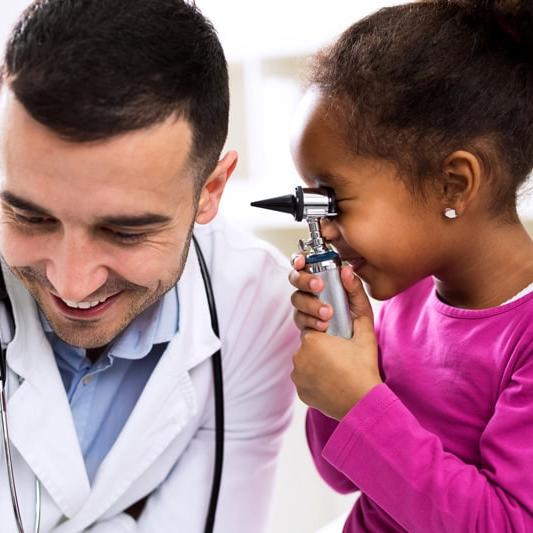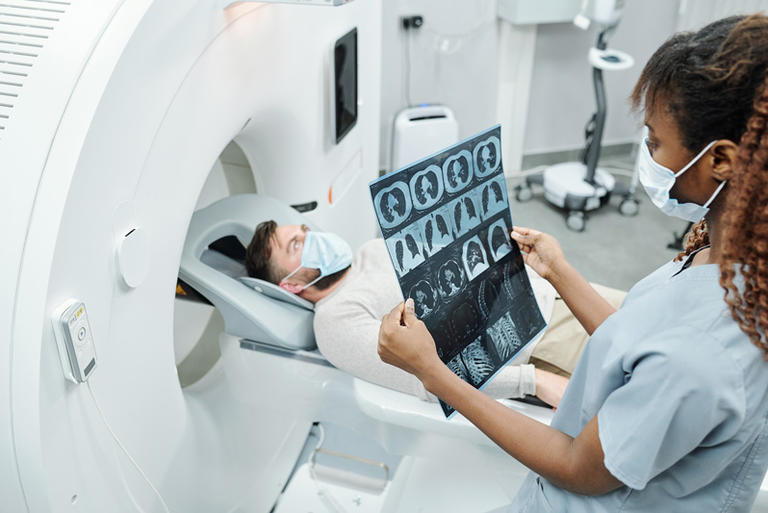If you are interested in women’s health and reproductive care, then you may consider a career as an OB/GYN, meaning a doctor specially trained in obstetrics and gynecology.
What is obstetrics? Obstetrics involves care during pregnancy, childbirth, and the postpartum period. What is gynecology? Gynecology deals with reproductive health and the functions and diseases specific to women and girls.
What does OB/GYN stand for? It stands for obstetrician and gynecologist, an expert on women’s health who combines both specialties. If you are considering a career as an OB/GYN, ask yourself these questions:
- Are you passionate about women’s reproductive health?
- Do you want to care for people during pregnancy, childbirth, and the weeks following childbirth?
- Are you interested in genetics and genetic counseling?
- Are you attracted to a procedure-based specialty?
- Do you want to develop long-lasting bonds with patients?
- Do you want a deep understanding of reproductive physiology?
If your answer to some or all of these questions is “yes,” then becoming an OB/GYN may be the career path for you.
What Does an OB/GYN Do?
Obstetrics and gynecology are taught together in residency, and doctors are certified by the American Board of Obstetrics and Gynecology (ABOG), but the medical specialties are distinct. You may be wondering: What is obstetrics and gynecology? What is the difference between obstetrics and gynecology? A physician interested in the OB/GYN field may pursue a variety of paths, including being only an obstetrician or only a gynecologist. Obstetricians provide pregnancy care for both the mother and the fetus, deliver babies at childbirth, and then help mothers recover from the physical and mental strains of pregnancy and childbirth. Obstetricians do not provide care beyond pregnancy. Gynecologists, on the other hand, do not deliver babies or treat pregnant women. They instead focus on the health of the uterus, the ovaries, the fallopian tubes, and other organs of the female reproductive system. Both obstetricians and gynecologists may prescribe drugs or perform surgery to treat a patient.
Most OB/GYN’s, however, choose to practice both obstetrics and gynecology, and many OB/GYN’s act as primary care physicians. The American Medical Association states that most patients seen by an OB/GYN — nearly 80% — are between the ages of 15 and 45, when health education and preventive care is key to a woman’s reproductive health. Many patients remain with the same OB/GYN for several years, allowing the development of trusting personal relationships. OB/GYNs counsel their patients and perform diagnostic procedures, surgeries, and other treatments. Obstetric and gynecologic responsibilities, procedures, and topics may include:
- Abortion
- Amniocentesis
- Childbirth
- Colposcopy
- Contraception
- Family planning
- Genetic screening and testing
- Health care disparities
- Hysterectomy
- Hysteroscopy
- Infertility
- Laparoscopic surgery
- Menopause
- Oncology
- Pap test
- Prenatal care
- Preventive care
- Reconstructive surgery
- Reproductive endocrinology
- Sexually transmitted diseases
- Ultrasonography
- Umbilical vein sampling
Obstetrician/gynecologists are also active in academic circles and participate in conferences and publications dedicated to advancing medical knowledge and therapeutic options.
In obstetrics and gynecology, all of the patients are women, and so too are most of the physicians. Patients may choose a physician by sex, race, or any other factor, and many women — both doctors and patients — feel more comfortable talking about intimate health topics with other women. Study findings published in the American Journal of Obstetrics & Gynecology showed that 85% of OB/GYN residents were women.
How Do You Train to Be an OB/GYN?
An OB/GYN must first become a medical doctor by graduating from an accredited medical school — such as Ross University School of Medicine (Ross Med)*. The doctor must then complete a four-year residency in obstetrics and gynecology. Qualified candidates are then certified by ABOG (American Board of Obstetrics and Gynecology). A board-certified OB/GYN may then become a fellow of the American College of Obstetricians and Gynecologists (FACOG). Doctors who want to subspecialize in a specific area of obstetrics/gynecology must take additional fellowship training approved by the Accreditation Council for Graduate Medical Education or the Royal College of Physicians and Surgeons of Canada. Fellowships last between two and four years, during which OB/GYNs may study such subspecialties as:
- Addiction medicine
- Breast health
- Critical care medicine
- Complex family planning
- Female pelvic medicine and reconstructive surgery
- Gynecologic oncology
- Hospice and palliative medicine
- Maternal–fetal medicine
- Pediatric and adolescent gynecology
- Reproductive endocrinology and infertility
- Urogynecological surgery
An alternate path to obstetrics exists through family medicine. After medical school, a doctor can do a family medicine residency and then subspecialize in obstetrics. Doctors trained in family medicine with obstetrics are certified by the Board of Certification in Family Medicine Obstetrics through the American Board of Physician Specialties. Family medicine obstetricians are primary care specialists qualified to handle all aspects of obstetrics. They are particularly needed in rural areas that may not have OB/GYN services nearby.
A Career in Obstetrics/Gynecology
OB/GYNs may work in a clinic, hospital, medical office, or university, and some have their own private practice. You may be curious to know what an OB/GYN’s definition of a normal day is. OB/GYNs spend most of their time seeing patients, assisting in childbirth, or performing surgery and other medical procedures. Meetings and administration tasks absorb time, and hours are spent consulting with other specialists, doing research, studying, and teaching. Some obstetricians and gynecologists work a typical 40-hour week, while others work much more. Hours vary according to the scope of practice or emergencies and complications that may arise during pregnancy and delivery. OB/GYNs from different institutions often form call groups to give individual physicians greater flexibility while on call away from work.
Because OB/GYNs are needed for a wide variety of women’s health issues, they can have a great impact on the individual lives of patients as well as overall community health.
Demand for OB/GYNs
The demand for OB/GYNs is as certain as the occurrence of pregnancy and women’s reproductive health issues. In other words, OB/GYNs will always be needed. And OB/GYNs — like doctors in all medical fields — are an aging population. As doctors retire, there will be an increasing shortage of OB/GYN specialists. A 2020 Association of American Medical Colleges report showed that one-third of U.S. physicians are age 60 or older, and that well over half — 57% — are over 50 years old.
Every year, Ross University School of Medicine places graduating students in obstetrics and gynecology and other medical residencies. In 2022–2023, the first-time residency attainment rate for Ross Med graduates was 98%.†
Now that you know what an OB/GYN does, you can better decide if becoming an obstetrician/gynecologist is the right career for you! Take the next step on your path to a specialization in obstetrics and gynecology: Check out Ross Med’s Doctor of Medicine (MD) program and the requirements for admission. And when you're ready, apply for admission to Ross Med.
Related resources:
* Ross University School of Medicine is accredited by the Caribbean Accreditation Authority for Education in Medicine and other Health Professions (CAAM-HP, www.caam-hp.org).
† First-time residency attainment rate is the percent of students attaining a 2023–2024 residency position out of all graduates or expected graduates in 2022–2023 who were active applicants in the 2023 NRMP match or who attained a residency position outside the NRMP match.




